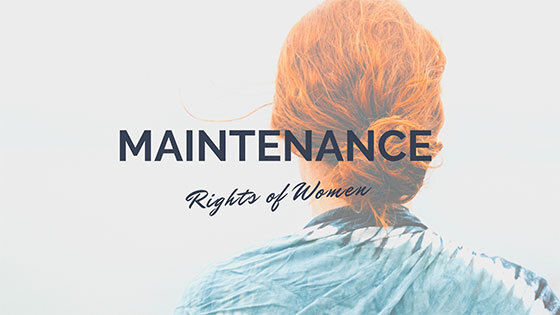By A ‘Common Woman’
When Arjuna went to the battlefield and realized that he must fight his loved ones, he no longer wanted to fight. His fingers trembled as his bow fell from his hand. He was depressed.
When you are depressed, you lose your will to fight. You want to self-destruct. You feel completely and utterly hopeless. If you are me, then you do not want to feel positive about a situation because you are afraid, you’ll sink lower into depression if you allow yourself to feel happy for even a moment.
I think my marriage is ending. I know the feeling – it’s familiar to me by now: exhaustion, high blood pressure, insomnia, everything feels… static. It’s like you’re a fallen soldier on a battlefield. There’s a war going on around you and you know you must fight, but you’re lying on the dusty ground, seeing blood and gore around you thinking, “What’s the point?” You want to rest but you can’t. You want to silence your mind, but all you feel is numb. Pointless. Fleeting moments of happiness, amusement, and joy come and go, as you observe the world with a heavy heart and a restless brain.
Deep down, I know my marriage was never a strong one to begin with. Sure, it carried with it the promise of a wonderful and fulfilling relationship. After all, who voluntarily enters a marriage thinking it might not last? I entered mine with hope and trepidation. I knew we had potential problems we needed to sort out, but as long as ‘we’ were a team, we would manage to overcome every challenge sooner or later, right?
Turns out, when it comes to a large number of men, or perhaps Indian men, there is no ‘we’ in a marriage. For mine too, the ‘we’ in my marriage belongs to my husband and his parents. In one of the many fights we had in the first couple of months of our marriage, I’d yelled, “You and your parents are a team, but what about me?” I don’t even remember what he said, but I highly doubt he’d have reassured me otherwise.
I have never been part of my husband’s club since we got married until the day of our impending divorce. His parents make all the decisions for their thirty-three-year-old child. What work he does at his office, what he wears to what he eats are all dependent on their wishes. He doesn’t get up from bed in the morning or go to sleep at night without hearing from them. And if you’re wondering whether he was like this on our honeymoon as well, let me tell you he canceled having a honeymoon in the first place and instead, chose to spend his vacation days hanging out with his parents. In fact, he spends all his vacation days reserved for his parents – not even one out of twenty-one days is for anyone else. And not a single one belongs to me.
I never thought I would be the girl on the internet ranting about her husband. Then again, I never thought I would be the girl who’d be contemplating a divorce when I have wanted my own beautiful love story since I was five years old. To have the perfect partner, you must be the perfect partner. So I became the most perfect version of myself I could be: got the best education from the best places, got multiple certifications, got the good job, and developed all the skills a person should have – be it cooking, taking care of pets, driving, changing a bulb, you name it. I continue to educate myself on all things that matter to him, from how to give the perfect blowjobs to how to invest wisely in high-risk investments. From doing my laundry to filing my taxes, I do everything and try to learn everything.
Yet, it makes no difference to my marriage. If my mother-in-law tells him not to eat a banana because it’ll give him ‘high cholesterol’, he won’t touch a banana. All the logic in the world given by his wife makes no difference. After a point, you think, “Did my husband want a ‘wife’ for his parents or a best friend for life?” Sadly, I know the answer and it depresses me more.
I do not want to complain about my husband. What I do want to do is ask all parents – Is this what you want, your child to remain co-dependent for the rest of your lives? What will that child do when you are too old, and he can neither talk to you nor his estranged wife and kids? Why are so many mothers hell-bent on making their children completely unsuitable for the world? Will we as a society ever change, or will you continue to ruin the lives of more women and ultimately, blame them when things fall apart?
In the end though, Arjuna had to perform his duty, his dharma, just like millions of Indian women who fight for their marriage despite society considering them the outsider in a family of parents and their son. And when they fail like the Pandava prince, they surrender the fate of their lives to Krishna, and the divine will of the universe.
Guest Author (Anonymous)





